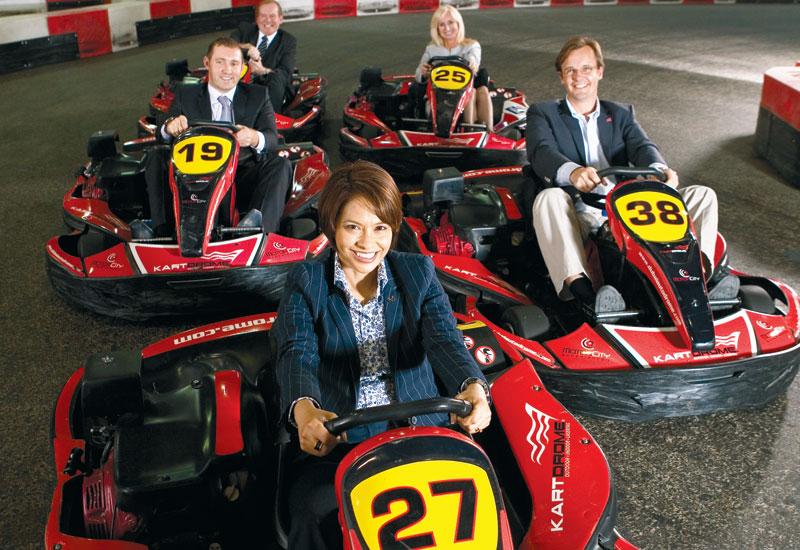 Cora Stuart, Paul Bridger, Janet Fitzner, Stephan Vanden Auweele, Simeon Olle, Henning Fries and Peter Blackburn
Cora Stuart, Paul Bridger, Janet Fitzner, Stephan Vanden Auweele, Simeon Olle, Henning Fries and Peter Blackburn
How has the role of the GM changed?
Paul Bridger: Even as a budget hotel we have everyone from the travelling salesman to the chief executive of the company, so we have to kind of change our service style.
Peter Blackburn: You have to be focused on new technology, as well as environmental issues.
CS: I believe that what Stephan said is true, the customer has changed. Today’s customer requires you to entertain them, it’s not about just providing them a safe, comfortable, luxurious environment to stay in, but more ‘what can you do to entertain me now’ and I think our role has changed in that we have to come up with something that makes a difference and attracts their attention. You have got to really stand out and be different and I think that’s what our role is — looking for innovations in technology, service etc.
The other thing is I believe that people want us to be less formal, I totally agree that it’s not about the formalities, but it’s about the reality of what I want as a customer and how you understand that at my level. It’s about logical service now.
HF: I think it’s also strong determination of what the brand is all about. The key themes are brands — they differ not only across this table but across the entire industry — and the clearer we are as to what kind of market we are attracting and what it is that we need to do in order to take a top spot in that market, that is going to determine what that product is all about.
I agree with you that the uniqueness, the experience, needs to be tailored towards this customer that you are trying to approach.

Advertisement
Paul Bridger: Guests are also more socially responsible now so they care how you treat your staff, where you buy your light bulb from, how you wash your laundry, they want to know that as a business you are operating in a transparent way.
SO: If you ask me how has the role changed from when I was growing up, I think now it’s definitely a more hands-on role. Gone are the days when you have a figurehead who is really there as a PR value, you need to really be hands-on, on the floor, getting involved in the operation and I think you really need to have the ability to be able to zoom in and zoom out from a business perspective. So look at details and then step back and have the ability to look at the big picture at the same time.
SVA: I think the basics have not changed, it’s still about people, the thing is the people have changed. It’s still about empathy towards your customers, your staff, your owners but the environment in which you operate has changed. A talent or a staff that you hired 20 yeas ago had different needs to somebody now. They are more international, they surf the web, they can find new jobs, so it’s a lot more complex than 20 years ago when you hired somebody, he was a number and that’s it. Now it’s a constant engagement. Also with customers, the world is a lot more open, people communicate — if tomorrow there is a bad service in your hotel everybody knows. You’re a lot more exposed, so the human interaction and the world in which we operate is a lot more demanding, things go faster, one bad service and the guy is tweeting you.
It’s a new challenge and you have to manage these and whether you like it or you do not like it, you just have to work with it.
SO: There’s nowhere for you to hide these days.
CS: That’s why there is a lot more demand for integrity in what you say and what you do.
Janet Fitzner: With people development, there are also changes I think. Your employees are also more demanding, they want to have faster growth paths, and of course ,they can also be more selective.
HF: The entire industry is much more transparent on both sides, for internal and external customers, it has become so much more transparent and fast paced as well. I think particularly in this part of the world as a general manager you are taking on such additional responsibility for your employees.
You’re basically taking responsibility for every aspect [of staff wellbeing], from their transportation to their living accommodation, every aspect that touches their lives, and this is quite unique compared to other parts of the world where you have employees that work eight / nine hours and then it’s not really your concern; here it is. It has a heavy impact on how well your employees are feeling about you as an employer, how it translates into the service that is delivered, so [the role of the GM] has greater scope here.








 Search our database of more than 2,700 industry companies
Search our database of more than 2,700 industry companies









